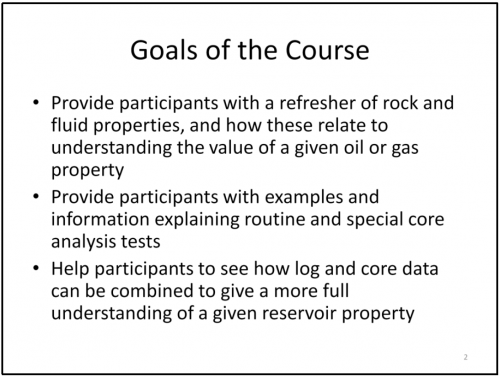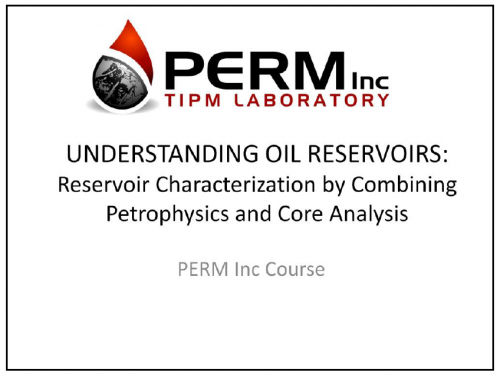A 2-Day Special Course
-
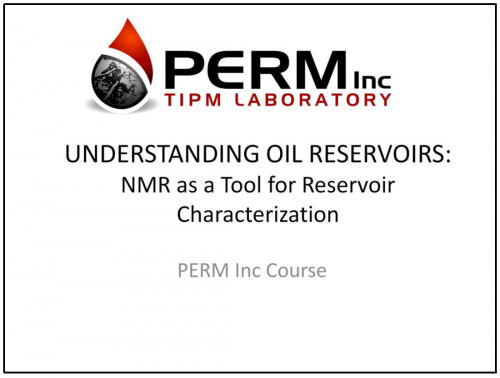
A 2-Day Special Course
Presented by Dr. Apostolos Kantzas & Dr. Jonathan Bryan
REGISTER BY: Stay tuned for new course dates! Low field Nuclear Magnetic Resonance (NMR) is a unique petrophysical tool that has been gaining significant exposure as a tool for understanding the properties of petroleum reservoirs. NMR tools and measurements are now commonly available to the Industry, in the form of both bench top (laboratory) and field (logging) applications. NMR tests are non-destructive, and can yield a tremendous wealth of information about both the reservoir and the reservoir fluids, all in a single measurement. This course is designed to provide participants with the necessary tools to understand how NMR works, and how to interpret spectra in different reservoir systems. This is a very practical and pragmatic course, and is very focused on using examples and case studies to demonstrate concepts. The goal of this course is for participants to come away with an understanding of how to interpret NMR spectra on their own. This course will be taught in the form of lectures with example problems dispersed throughout, which are designed to help course participants to internalize and understand the principles being taught. Participants are encouraged to bring laptop computers with Excel, which will be needed for some of the problems. -
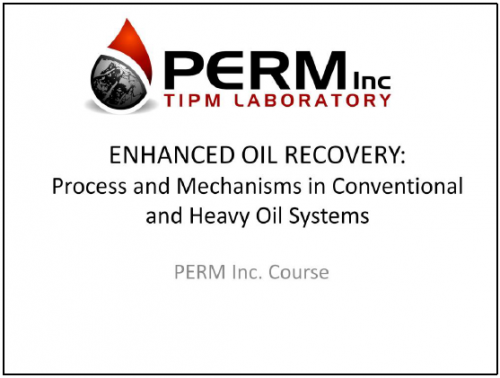
A 2-Day Special Course
Presented by Dr. Apostolos Kantzas & Dr. Jonathan Bryan
REGISTER BY: Stay tuned for new course dates! Also known as "FUNDAMENTALS OF NON-THERMAL ENHANCED OIL RECOVERY". The focus of many of the world’s oil fields is now moving to either improved/enhanced oil recovery from mature fields, or development of new unconventional resources, for which conventional methods such as waterflooding or primary recovery may not be possible. As projects become larger, more expensive and vastly more complex, it is valuable to have an understanding of Enhanced Oil Recovery processes, and how they can be used to produce oil from these fields. This course focuses on understanding where oil is located within a given porous medium, and developing EOR processes that are designed to target this residual oil. The basics of trapping and mobility ratio are used to understand polymer floods, surfactant and alkali floods, and solvent floods. This course also offers a unique insight into EOR in heavy oil and bitumen systems, and the challenges faced with recovering viscous oil in difficult reservoirs. This course will be taught in the form of lectures with example problems dispersed throughout, which are designed to help course participants to internalize and understand the principles being taught. -
Out of stock
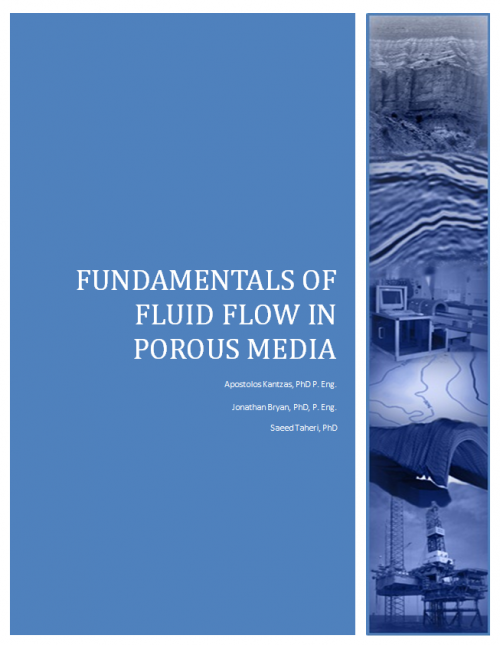
Digital Textbook Download (PDF)
Apostolos Kantzas, PhD P. Eng. Jonathan Bryan, PhD P. Eng. Saeed Taheri, PhD The purpose of this manuscript is to provide the reader with the basic principles of flow in porous media and their association to hydrocarbon production from underground formations. The intended audience is undergraduate and graduate students in petroleum engineering and associated disciplines, as well as practicing engineers and geoscientists in the oil and gas industry. The material draws from the experiences of the authors in the Western Canadian Sedimentary Basin and, wherever possible, draws from unconventional resources. This textbook manuscript is not 100% complete, and there are some sections that will be added over time.

